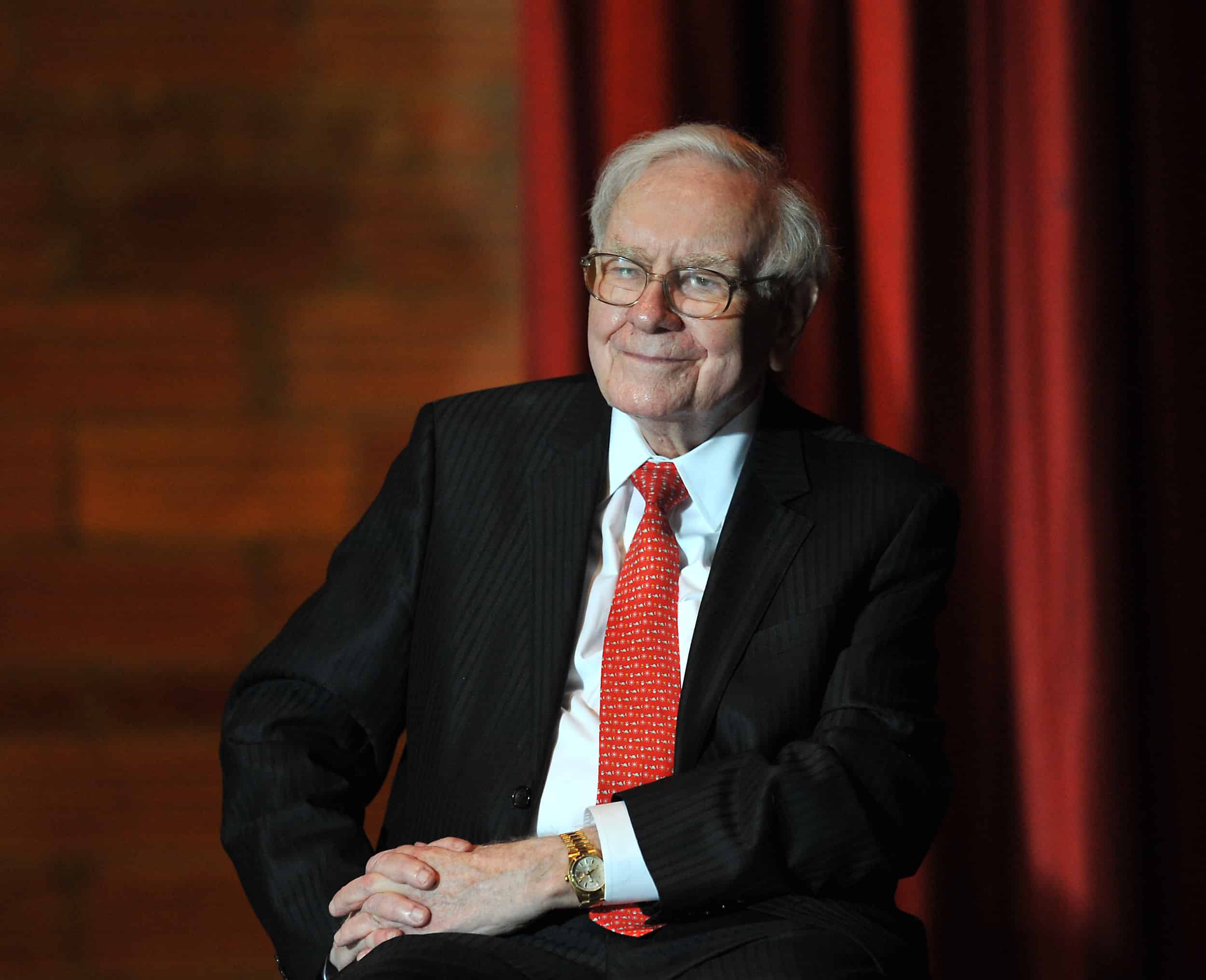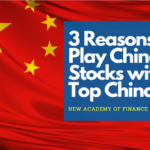Before all the Warren Buffett’s fans out there start stoning me, these are Warren Buffett’s own words pertaining to a particular loss opportunity:
“In the earlier years, it’s very clear – the answer is stupidity”
Warren Buffett
What was this pertaining to?
He was actually referring to his decision NOT to invest in Microsoft in the earlier days.
And Berkshire Hathaway will likely never ever buy Microsoft, even if the latter is the best company in the world. Why is that so?
In the 2018 Berkshire Hathaway Annual Meeting, Warren Buffett highlighted that “it would be a mistake for Berkshire to buy Microsoft“.
This has nothing to do with the business model or industry of Microsoft. The problem lies with Bill Gates, who joined the Berkshire Hathaway board in 2004 and retired as chairman of Microsoft in 2014.
To avoid any ethical conflicts and perception of insider trading, Microsoft is now one of the few companies that are off the investment list of Berkshire.
However, Warren had plenty of opportunities to invest in Microsoft in the earlier years and why he did not do so boils down to, in his own word: “stupidity“!
Well, it makes one wonder if one of the greatest investors of all time is “stupid”, where does it leave us, wannabe investors?
So what is this post all about?
This post is intended to share some of the latest content that I read from John Huber’s periodic write-up. Recall that he is one of my 10 recommended investing blogs/sites to follow.
This is pertaining to an email exchange between Warren Buffett and a high-level Microsoft employee by the name of Jeff Raikes back in 1997.
Jeff was pitching to Buffett why Microsoft was such a great company back then (and still is) and why he was comfortable having 90% of his wealth tied to the company.
He described Microsoft as a company with two key segments:
1) Royalty business: Microsoft controlled 80% of the operating system back then and was paid a recurring fee for every PC that was being sold. In fact, they essentially had a monopoly. The other 20% was lost due to piracy. As more and more PCs were being sold (recall the late 1990s), Microsoft’s royalty will continue to grow. Having a monopoly control over the OS world, Microsoft also has huge pricing power which allows the company to increase its pricing power alongside higher sales.
This royalty business was essentially pure profit.
2) Software business: The second key revenue stream is its software business. It consists of businesses or individuals buying office productivity software, educational or entertainment software. This is akin to the analogy of a PC being the razor that needs blades, and they are the provider of the blades, which if you don’t already know, is a huge recurring revenue source, just like the Gillette business model.
Again, similar to its royalty business, this software business could achieve a large amount of sales volume with a very low amount of operating expenses.
Why didn’t Buffett invest?
Besides “stupidity”, which Buffett admitted, the key reason why Buffett did not pull the trigger at that time wasn’t because of valuation (in fact, there was no mention of valuation anywhere in the email correspondence), but because he did not understand the technology business enough, including their pricing power.
The lack of this understanding stopped him from pulling the trigger as he wishes to only pitch when he knows it is a “0.400 ball”.
Unlike in baseball where one might be hardpressed to make a pitch, in the investing world, there will always be new pitches coming your way, no matter how many balls go by.
If one is very patient and disciplined, one will find that the market is filled with many opportunities to make profitable, low-risk investments.
So Buffett missed this “pitch”, but he made plenty of near 0.400 pitch that led him to where he is today: the greatest fundamental investor of all time.
The 4 key tenets of a great business
In his article, John Huber identified 4 key advantages that the 5 largest companies (Apple, Microsoft, Google, Amazon, Facebook) in the S&P500 possess.
1) No inventory: Their businesses do not involve inventory or a significant chunk of them. This allows the companies to generate huge gross margins as well as generate a large amount of cash flow that does not need to be reinvested into working capital.
2) Huge operating leverage: Their businesses have very low marginal costs, meaning that each additional dollar of revenue is very high margin. Sales growth flows directly to improving operating margins as variable expenses are low.
3) Ease of customer outreach: These companies leverage the power of the internet to reach customers more quickly and more cheaply than before. Facebook’s addressable market is everyone connected to the web.
4) Low Capex by leveraging on others’ spending: These companies have taken advantage of someone else’s capital expenditure which removes the need to borrow money to fund their business growth. This results in a higher return on capital. For example, Facebook gets to use AT&T’s capital investments for its own gain, but don’t have to put AT&T’s debt on its balance sheet. The same goes for Microsoft leveraging on IBM’s Capex all these years.
So is there a Singapore company that currently possesses these 4 tenets that make up a great business?
Well, to be honest, I struggle to come out with a local idea that fits the profile of such a great business as highlighted above.
The closest comparison that I can think of is SATS Ltd.
Why is SATS a potentially great business?
I have written about SATS a couple of times, mostly voicing my cautious outlook and the possible headwinds in the near term.
However, I still view SATS as a strong long-term investment candidate and I will try to use the above 4 tenets as a quick illustration of why SATS fit the profile of a great business.
1) No Inventory: The company has an extremely low inventory, amounting to c.SGD$49m as of 1HFY20. This compares to c.SGD$2.6bn in total assets.
2) Huge operating leverage: While I will not say that its operating leverage is “huge”, SATS does have quite a fair bit of operational leverage. The company is gradually transitioning towards relying less on physical labor and more on automation and robotics. After the fixed investments are in place, the incremental variable expenses can be lower.
However, this works both ways. Recent quarters of slowing sales due to a weak cargo environment has seen an operational deleveraging of the company. If one believes that the cargo weakness has indeed bottomed, then the company might be on-track for an operating margins turnaround.
3) Ease of customer outreach: This is where I see SATS lagging in terms of leveraging on the power of the internet to grow its business. SATS has a B2B business model that is based on brand power, reputation and track record of continual excellence. The company, however, indirectly benefits from higher travel demand, one that is catalyzed by the ease of online travel booking in recent years.
4) Low Capex by leveraging on others’ spending: The company is a low Capex business, averaging approx. SGD$90-100m/annum in terms of Capex spending, which is only 1/3 of its operating cash flow.
The company does not have to spend to build huge airport terminals to grow its passenger base. Neither does it has to incur huge capital to grow aircraft fleet in conjunction with higher air travel demand. These are Capex spending incurred by Airport Groups and Airlines.
The company just leverages on their spending to provide better services to air travelers.
“The best business is a royalty on the growth of others, requiring little capital itself”
Warren Buffett
Conclusion
John Huber came to the conclusion that it makes lots of sense to spend time focusing on businesses that are widening their moats and growing their intrinsic value and then try to fish in that pond vs. trying to time the market in marginally mispriced stocks of marginally good businesses.
Unfortunately for most of us, that requires lots of 1) time commitment, 2) knowledge build-up and 3) costly mistakes along the journey.
One way to fast-track the process is to learn from investment gurus, understanding their thought process behind certain investment decisions that they make. Or one could just mimick their purchases.
Within the Singapore context, it is and likely always a challenge to find great companies that fit the above 4 tenets of great businesses (according to John Huber) to invest in. One should, therefore, be open about investing beyond the realms of tiny Singapore.
Do Like Me on Facebook if you enjoy reading the various investment and personal finance articles at New Academy of Finance. I do post interesting articles on FB from time to time which might not be covered here in this website.
Join our Telegram broadcast: https://t.me/gemcomm
SEE OUR OTHER WRITE-UPS
- THE CONFUSING MATH BEHIND RETIREMENT SUM SCHEME AKA CPF LIFE PREDECESSOR
- DIVIDENDS ON STEROIDS: A LOW-RISK STRATEGY TO DOUBLE YOUR YIELD
- STASHAWAY SIMPLE. CAN YOU REALLY GENERATE 1.9% RETURN?
- WHY I AM STILL BUYING REITS EVEN WHEN THEY LOOK EXPENSIVE
- TOP 10 FOOD & BEVERAGE BRANDS. ARE THEY WORTHY RECESSION-PROOF STOCKS?
- TOP 10 HOTTEST STOCKS THAT SUPER-INVESTORS ARE BUYING
Disclosure: The accuracy of the material found in this article cannot be guaranteed. Past performance is not an assurance of future results. This article is not to be construed as a recommendation to Buy or Sell any shares or derivative products and is solely for reference only.









